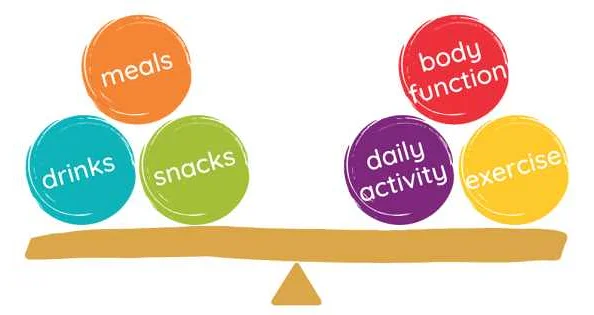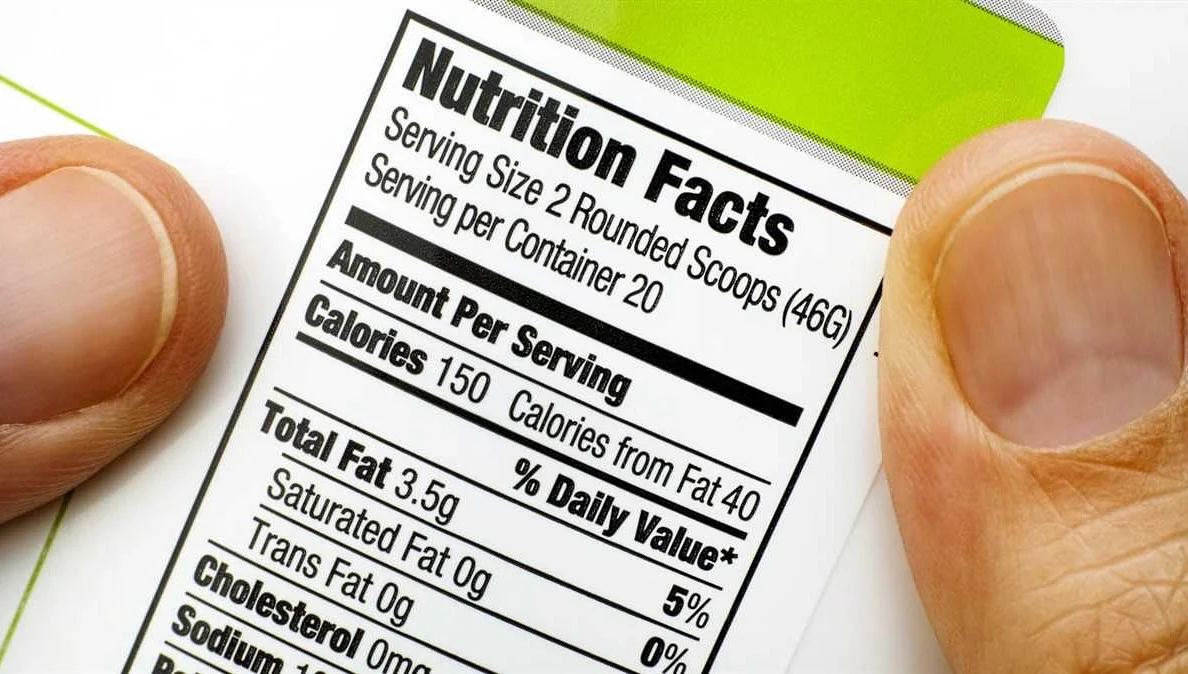How many calories should a person consume per day? Daily calorie intake
Discover how many calories a person should consume per day to maintain a healthy weight, lose weight, or gain weight. Learn about the factors that affect calorie intake and find tips for managing your daily calorie consumption.
Calories play a vital role in our daily lives, serving as the fuel that keeps our bodies running efficiently. Understanding how many calories we should consume per day is crucial for maintaining a healthy weight and overall well-being. However, determining the right daily calorie intake can be a complex task, as it depends on various factors such as age, gender, activity level, and goals.
Calories are units of energy that our bodies need to perform basic functions like breathing, digesting food, and pumping blood. Additionally, we burn calories through physical activity. The number of calories we require per day can be divided into three main components:
Basal Metabolic Rate (BMR), which represents the calories burned at rest; Thermic Effect of Food (TEF), which accounts for the calories burned during digestion; and Physical Activity Level (PAL), which includes calories burned through exercise and daily activities.
The first step in determining your daily calorie intake is to calculate your BMR, which can be done using various formulas. These formulas take into account factors such as age, weight, height, and gender. Once you have calculated your BMR, you can then factor in your activity level to determine your total daily calorie needs.
It’s important to note that daily calorie requirements differ from person to person based on individual factors and goals. For example, someone looking to lose weight might aim for a calorie deficit, consuming fewer calories than they burn. On the other hand, an athlete or someone trying to build muscle may require a calorie surplus to support their higher activity levels and muscle growth.
Understanding Calorie Intake
Calorie intake refers to the number of calories a person consumes in a day. It is an important factor to consider when it comes to maintaining a healthy weight and overall well-being.
Calories are units of energy that our bodies need to carry out basic functions, such as breathing, digestion, and physical activity. The number of calories a person needs varies depending on factors such as age, sex, weight, and activity level.
Understanding calorie intake is crucial for managing weight. If a person consumes more calories than they burn, they will gain weight. On the other hand, if they consume fewer calories than they burn, they will lose weight. It’s important to find the right balance that works for your body and goals.
There are various ways to determine an individual’s calorie intake. One method is to calculate the basal metabolic rate (BMR), which is the number of calories needed to maintain basic bodily functions at rest. Another popular method is to use an online calculator that takes into account factors such as activity level and weight goals.
It’s important to note that the quality of calories consumed is just as important as the quantity. It’s best to focus on consuming nutrient-dense foods that provide essential vitamins, minerals, and macronutrients. These include fruits, vegetables, whole grains, lean proteins, and healthy fats.
An understanding of calorie intake can help individuals make informed decisions about their diet and overall health. By paying attention to the calories they consume and the types of foods they eat, individuals can work towards achieving a healthy weight and overall well-being.
| Children (4-8 years) | 1,200 – 1,400 calories |
| Girls (9-13 years) | 1,400 – 1,600 calories |
| Boys (9-13 years) | 1,600 – 1,800 calories |
| Teen Girls (14-18 years) | 1,800 – 2,400 calories |
| Teen Boys (14-18 years) | 2,200 – 3,200 calories |
| Adult Women | 1,800 – 2,400 calories |
| Adult Men | 2,200 – 3,000 calories |
Factors Influencing Caloric Needs
Several factors impact an individual’s daily caloric needs. These include:
- Age: The caloric needs of a person generally decrease as they age. Younger individuals require more calories to support their growth and development, while older individuals require fewer calories.
- Gender: Men typically have higher caloric needs than women due to differences in body composition and metabolic rates.
- Weight: The amount of calories needed to maintain or lose weight depends on an individual’s current weight. Heavier individuals generally require more calories to sustain their body mass.
- Physical activity level: Those who engage in regular exercise or have physically demanding jobs will usually have higher caloric needs to fuel their activity.
- Metabolic rate: Some people naturally have a faster or slower metabolic rate, which affects the number of calories their bodies burn at rest.
- Genetics: Genetics can influence an individual’s metabolic rate and body composition, ultimately impacting their caloric needs.
It’s important to remember that these factors are just a general guideline. Individual caloric needs may vary, and it’s always best to consult with a healthcare professional or registered dietitian to determine the appropriate calorie intake for your specific needs.
Calculating Daily Calorie Intake
Calculating your daily calorie intake is an important step in maintaining a healthy diet and achieving your fitness goals. It is essential to find the right balance between calorie consumption and expenditure to prevent weight gain or loss.
To calculate your daily calorie intake, you need to consider several factors:
1. Basal Metabolic Rate (BMR)
Your BMR is the number of calories your body needs to perform basic functions at rest, such as breathing and digestion. It is influenced by factors such as age, gender, weight, and height. There are various formulas available to estimate your BMR, such as the Harris-Benedict Equation or Mifflin-St Jeor Equation.
2. Physical Activity Level
Your physical activity level plays a significant role in determining your daily calorie needs. If you have a sedentary lifestyle, your calorie needs will be lower than someone who exercises regularly. Consider whether you have a desk job, engage in moderate exercise, or have a high-intensity training routine.
3. Goals
Your goals also influence your daily calorie intake. If you want to lose weight, you will need to create a calorie deficit by consuming fewer calories than your body needs. On the other hand, if you want to gain weight or build muscle, you will need to consume more calories than your body needs.
Once you have determined your BMR, physical activity level, and goals, you can use online calculators or consult with a nutritionist to calculate your daily calorie intake. However, it’s important to remember that these calculations are estimates and may need adjustments based on your individual needs and preferences.
Monitoring your daily calorie intake can help you make informed decisions about your diet and maintain a healthy weight. It’s crucial to focus on consuming nutrient-rich foods and avoiding empty calories from sugary drinks and processed snacks.
Remember, maintaining a balanced and nutritious diet is key to achieving optimal health and well-being.
Recommended Calorie Intake for Different Individuals

The recommended daily calorie intake varies for individuals based on factors such as age, gender, weight, height, and activity level. Here are some general guidelines:
- Adult men: On average, adult men need about 2,500-3,000 calories per day to maintain their weight. This can vary depending on factors such as muscle mass and activity level.
- Adult women: On average, adult women need about 2,000-2,500 calories per day to maintain their weight. However, pregnant and breastfeeding women may need additional calories.
- Children: The calorie needs for children vary depending on their age, growth rate, and activity level. Generally, younger children need fewer calories than older children.
- Teenagers: The calorie needs for teenagers are higher due to their growth spurt. It is recommended that they consume about 2,000-3,000 calories per day, depending on their gender and activity level.
- Elderly individuals: As people age, their metabolism tends to slow down, and their calorie needs decrease. It is recommended that elderly individuals consume about 1,600-2,400 calories per day, depending on their activity level and overall health.
It is important to note that these are general recommendations and may not apply to everyone. It is always best to consult with a healthcare professional or registered dietitian to determine your specific calorie needs based on your individual circumstances.
Managing Calorie Intake for Weight Loss or Gain

Managing calorie intake is crucial for achieving weight loss or weight gain goals. Although the ideal daily calorie intake differs from person to person, there are general guidelines that can help individuals achieve their desired weight.
Weight Loss:
To lose weight, individuals need to consume fewer calories than their bodies burn. A calorie deficit of about 500-1000 calories per day can result in a gradual and sustainable weight loss of 1-2 pounds per week. It is important to focus on consuming nutrient-dense foods, including fruits, vegetables, whole grains, lean proteins, and healthy fats. These foods provide essential nutrients while keeping calorie intake in check.
In addition to managing calorie intake, incorporating regular exercise into daily routine can further enhance weight loss efforts. Exercise helps burn calories, increase metabolism, and build muscle, which can in turn increase calorie burn even at rest.
Weight Gain:
To gain weight, individuals need to consume more calories than their bodies burn. A calorie surplus of about 500-1000 calories per day can lead to a gradual and healthy weight gain of 1-2 pounds per week. However, it is important to focus on consuming calorie-dense foods that are also rich in nutrients. This includes foods like lean proteins, whole grains, nuts, seeds, and healthy oils.
Strength training exercises can also be beneficial for those looking to gain weight, as they help build muscle mass. Muscle weighs more than fat, so incorporating strength training into a routine can help individuals gain weight in a healthy way.
Consulting a Professional:
It is important to note that managing calorie intake for weight loss or gain should be done under the guidance of a healthcare professional or registered dietitian. These professionals can assess individual needs, provide personalized guidance, and ensure a safe and effective approach to managing calorie intake.